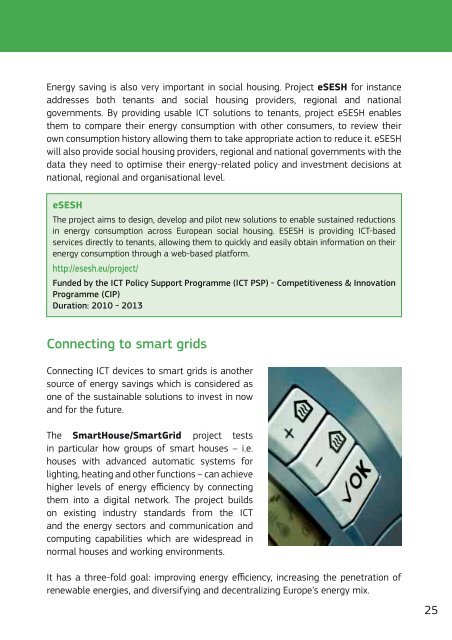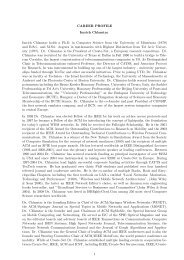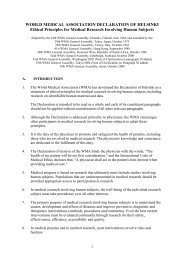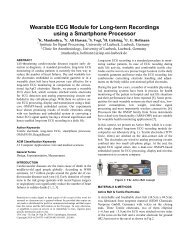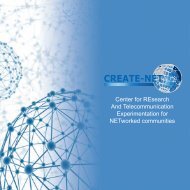ICT for Societal Challenges - European Commission - Europa
ICT for Societal Challenges - European Commission - Europa
ICT for Societal Challenges - European Commission - Europa
You also want an ePaper? Increase the reach of your titles
YUMPU automatically turns print PDFs into web optimized ePapers that Google loves.
Energy saving is also very important in social housing. Project eSESH <strong>for</strong> instance<br />
addresses both tenants and social housing providers, regional and national<br />
governments. By providing usable <strong>ICT</strong> solutions to tenants, project eSESH enables<br />
them to compare their energy consumption with other consumers, to review their<br />
own consumption history allowing them to take appropriate action to reduce it. eSESH<br />
will also provide social housing providers, regional and national governments with the<br />
data they need to optimise their energy-related policy and investment decisions at<br />
national, regional and organisational level.<br />
eSESH<br />
The project aims to design, develop and pilot new solutions to enable sustained reductions<br />
in energy consumption across <strong>European</strong> social housing. ESESH is providing <strong>ICT</strong>-based<br />
services directly to tenants, allowing them to quickly and easily obtain in<strong>for</strong>mation on their<br />
energy consumption through a web-based plat<strong>for</strong>m.<br />
http://esesh.eu/project/<br />
Funded by the <strong>ICT</strong> Policy Support Programme (<strong>ICT</strong> PSP) - Competitiveness & Innovation<br />
Programme (CIP)<br />
Duration: 2010 - 2013<br />
Connecting to smart grids<br />
Connecting <strong>ICT</strong> devices to smart grids is another<br />
source of energy savings which is considered as<br />
one of the sustainable solutions to invest in now<br />
and <strong>for</strong> the future.<br />
The SmartHouse/SmartGrid project tests<br />
in particular how groups of smart houses – i.e.<br />
houses with advanced automatic systems <strong>for</strong><br />
lighting, heating and other functions – can achieve<br />
higher levels of energy efficiency by connecting<br />
them into a digital network. The project builds<br />
on existing industry standards from the <strong>ICT</strong><br />
and the energy sectors and communication and<br />
computing capabilities which are widespread in<br />
normal houses and working environments.<br />
It has a three-fold goal: improving energy efficiency, increasing the penetration of<br />
renewable energies, and diversifying and decentralizing Europe’s energy mix.<br />
25


